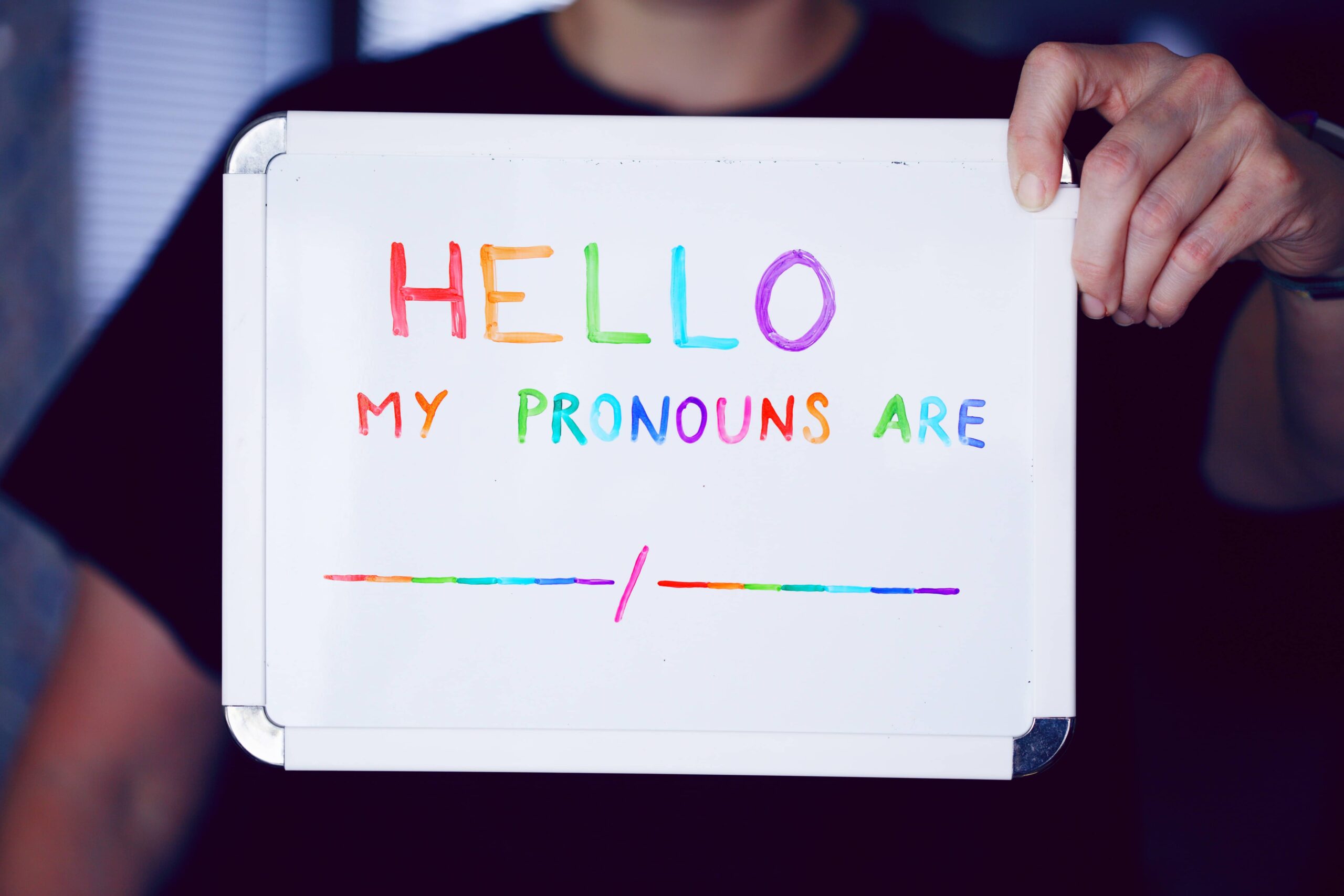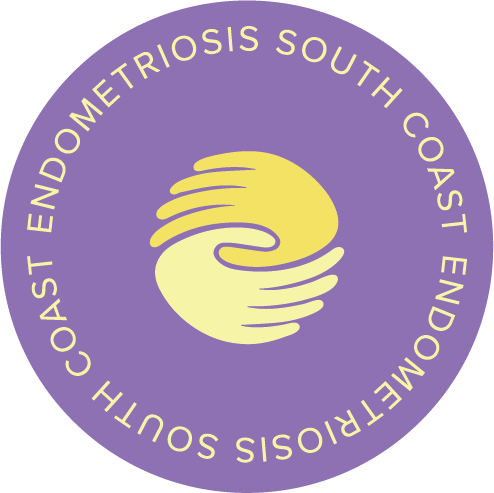October 17, 2022
Managing Endometriosis When You’re Trans: Suffering In Silence

Managing endometriosis is a feat in itself, but it can be an even more difficult and isolating experience for transgender individuals.
Too often, transgender and non-binary people are left out of the conversation when it comes to this disease. This can lead to a lack of understanding and feelings of helplessness, which in turn, can cause worsening symptoms.
Without the belief that you know where and how to access proper support, people can hinder their condition. Not taking the necessary steps to improve or manage endometriosis can be devastating and something needs to be done to ensure they are included and treated in the same way as any cis woman.
In this blog post, we will discuss some of the struggles that transgender and non-binary people face when trying to receive a diagnosis for endometriosis. We will also talk about the hardships of going through the disease when you don’t identify as a woman.
But first, here is some vocabulary to become familiar with:
- Cisgender (Cis) – When you identify as the sex you were given at birth.
- Transgender (Trans) – Someone who identifies with a gender different to one they were assigned at birth.
- Nonbinary – Not identifying as exclusively male or female. Or identifying outside of the gender binary entirely.
Managing endometriosis can be a decade-long struggle for anyone who is suffering. But when you’re also up against identity validation issues, a lack of inclusive medical care, and little to no education about the disease – it can feel impossible.
Transgender and non-binary people with endometriosis often suffer in silence because of the feeling that their symptoms are invalidated or not worth mentioning. This is primarily due to the fact that most information on the condition is geared towards cis women, leaving trans people feeling invisible and unheard.
There are many individuals who go undiagnosed for years because doctors aren’t trained to look for the signs in anyone other than cis women. Or, they don’t put two and two together as quickly. This is a huge problem as endometriosis can lead to infertility and other long-term issues.
Reproductive Education
Endometriosis doesn’t just affect cis women – it can affect anyone with a uterus. And we need to start talking about it.
A major obstacle is the fact that initially, a lot of us get minimal sex education and lessons on the workings of our reproductive systems. We’re not taught about different reproductive organs, let alone the fact that not every man has a penis. This can leave trans people feeling uneducated and lost when it comes to their own bodies.
If we had more inclusive reproductive education, it would open up the conversation for trans people to feel comfortable discussing their symptoms with medical professionals. It would also help break down the barriers that are preventing them from getting an accurate diagnosis.
The first step in making progress is to break the silence and start talking about endometriosis in a way that includes everyone. We need to remember that this isn’t just a cis woman’s disease – it can affect lots of other people too including those who identify as male or outside of the gender binary. We all deserve the same level of care and understanding.
Dysphoria
For transgender and non-binary people, managing endometriosis can be made significantly harder by the presence of gender dysphoria. This is the feeling of discomfort or distress that’s caused by a mismatch between someone’s biological sex and the gender they identify as.
It’s not uncommon for trans people to experience anxiety, depression, and other mental health issues due to gender dysphoria. This can make it hard for them to cope with physical pain as well. So when you add in the symptoms of endometriosis on top of that, it creates a perfect storm of conditions that are often left unaddressed
Amongst these struggles, being misgendered is a real issue. This is when someone refers to you using the pronouns or terms associated with the gender you don’t identify as. It might not seem like a big deal to some people, but for trans people who are already struggling with their identity – it can be incredibly hurtful.

In a medical setting, this can be especially difficult. When you’re in pain and trying to explain your symptoms to a doctor, the last thing you want is to be misgendered. It can make people feel like they’re not being fully understood or respected. Unfortunately, this is a reality for many trans and non-binary people who suffer from endometriosis.
Advocating for the use of inclusive language is one way we can begin to improve people’s education on their own conditions. Whilst trying to deal with managing endometriosis, people should not have to worry about being misgendered or having external problems affect their mental health.
Recognising Signs and Symptoms
There is so much overlap in the medical world when it comes to a diagnosis. Endometriosis can often be disregarded by medical professionals as being other conditions that carry similar signs.
IBS, PCOS, pelvic inflammatory disease, and adenomyosis are all examples of conditions that can be mistaken for endometriosis or vice versa. This is one of the main reasons why it can take years to get a diagnosis.
But transgender people often have an even harder time recognising their own struggles. Whilst struggling with dysphoria – it is not uncommon for individuals to suffer in silence or secretly hope they’re experiencing something else.
As a result, people do not seek the correct help and can leave the condition to get worse. It’s essential that we learn to recognise the signs and symptoms in ourselves and others. Only then can we start pushing for better medical care and more inclusive practices.
This lack of visibility makes it difficult for trans and non-binary people to get an accurate diagnosis. They might not realise that what they’re experiencing is related to endometriosis, or they might think that their symptoms aren’t severe enough to warrant a trip to the doctor.
Some common signs and symptoms of endometriosis include:
– Painful periods
– Pelvic pain
– Pain during sex
– Fatigue
– Gastrointestinal issues
– Infertility
If you would like some more information on what to look out for – you can read about it in our other blog.
Medical Gaslighting
When going through the process of getting a diagnosis, transgender and non-binary people often face something called “medical gaslighting”.
This is when doctors or medical professionals dismiss or downplay your symptoms. It can be incredibly frustrating and invalidating – especially when you’re already in a lot of pain.
Unfortunately, this is a reality for many trans and non-binary people who suffer from endometriosis. (As well as plenty of cis-women!)
The lack of understanding and knowledge on the subject means that some doctors might not take symptoms seriously. We often get told that it is just bad period cramps, or that it’s all in our head.
It’s important to remember that you know your body better than anyone else. If you’re experiencing pain or other symptoms, there is likely to be something going on – whether it is endo related or not!
Managing Endometriosis: The Final Straw
If you don’t feel like you’re being listened to or taken seriously, it might be worth considering going to see another doctor. It can be frustrating having to keep explaining your situation – but it’s important to find someone who will hear you out and provide the best care possible.
There is still a lot of work to be done when it comes to making the medical world more inclusive for everyone. But by raising awareness and speaking up about our experiences, we can begin to make change happen. Managing endometriosis is hard enough – no one should have to do it in silence.
If you’re struggling to find a doctor that you feel comfortable with, we host support groups as well as have online support you can turn to for advice or find others with similar stories who may be able to help you.
We need to continue to fight for our rights and push for better medical care. In the meantime, we should all try to support each other as best we can.
If you’d like to hear more about managing endometriosis when you are trans, we have a fantastic blog that highlights the personal experience of a transman called Alex. Alternatively, feel free to get in touch with our team to see how we can help in other ways!

